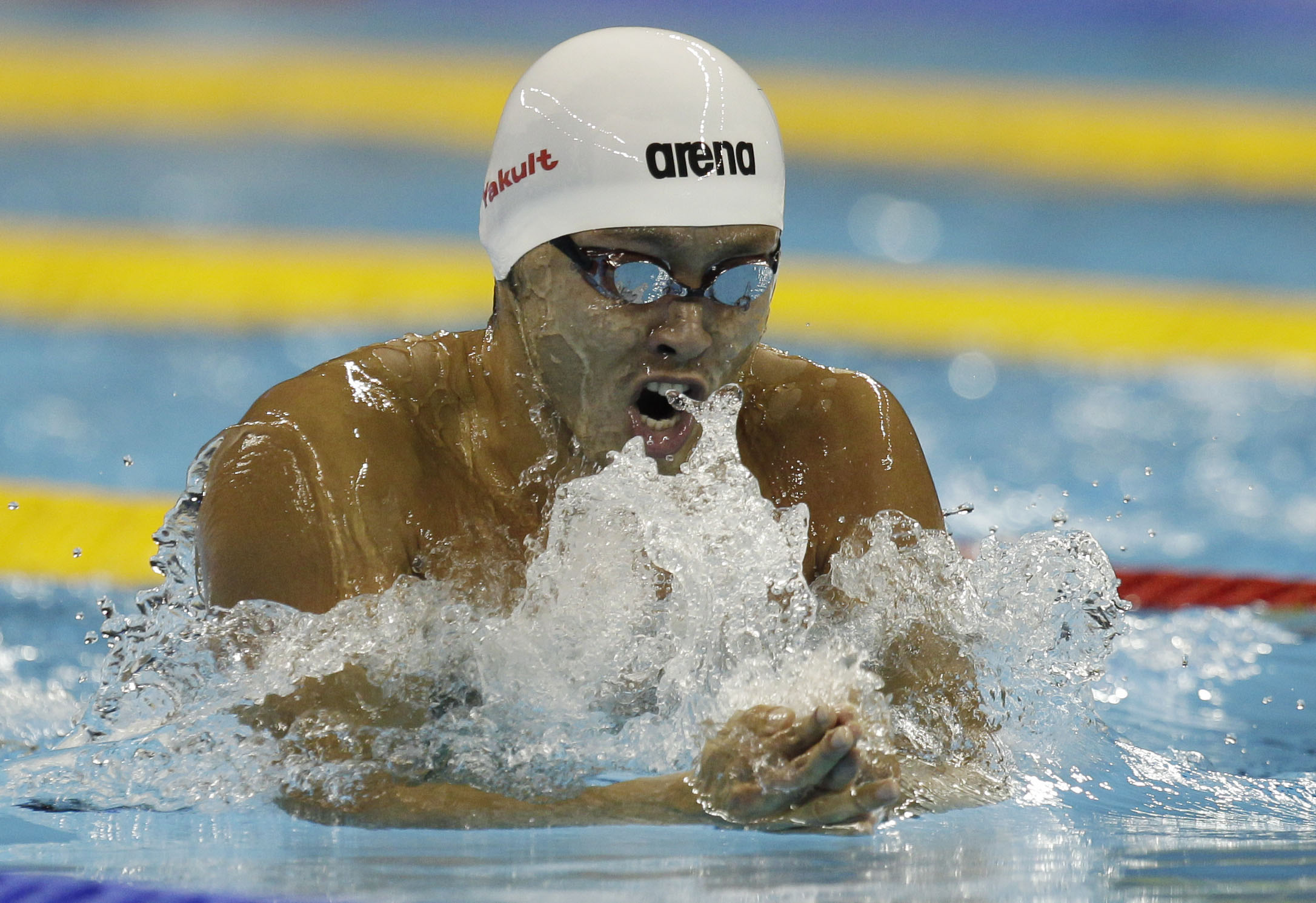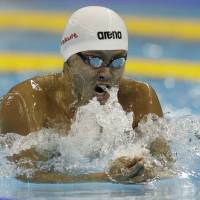Sometimes the smartest thing an athlete, team or coach can do is call a timeout.
That's what Tokyo native Kosuke Kitajima did after capturing his third and fourth Olympic gold medals — repeating in the 100- and 200-meter breaststroke races in Beijing — three Augusts ago. It wasn't a timeout in the literal sense, but time away from the grind of high-stakes competition.
He was smart to take time off in 2009, giving himself time to slow down and begin the diligent climb back to Olympic-level fitness and focus, as well as the emotional highs and lows that come with it.
The 2011 FINA World Swimming Championships, which ended on Sunday, was a dress rehearsal for the coming year. Kitajima's failure to win a single gold medal in Shanghai, however, was not a big surprise. He's in preparation mode for 2012 with a clear target: only the ultimate prize.
Placing fourth in the 100 and second in the 200 — the latter in 2 minutes, 8.63 seconds, which included a world record pace before slowing down at the end — was solid work, respectable, but not what one has come to expect from Kitajima.
Of course, he's set the bar so high for so long that anything except gold is, well, a disappointment for Japanese fans.
The 28-year-old coped with a left thigh injury this year and pushed himself physically to be ready for worlds. He was not at the top of his game, but made the necessary return to the spotlight to usher in the real preparation for 2012.
After slipping to second in the closing meters of the 200 on Friday, Kitajima understood immediately that he had nearly pulled off a spectacular effort. In the end, though, not getting it may be the perfect motivation he needs to prepare for the London Olympics.
"This is the first time in a while I have nothing left after a race," Kitajima told Kyodo News on Friday. "I didn't think I could swim like this and have a strong race in the 200 meters just days after a poor swim in the 100 final. I'm glad I could come back and give it my all in the 200."
A year from now, Kitajima should be in the hunt for two gold medals, possibly winning both the 100 and 200 again. It would be the crowning achievement to a remarkable career, even as Norway's Alexander Dale Oen, Hungary's Daniel Gyurta and others aim to take away Kitajima's crown.
There will be the third act in this riveting pool drama.
Like a longtime prize fighter returning to face a rising star, all eyes will be on Kitajima next summer as he steps back into the spotlight. And remember this: He handled it brilliantly in Beijing, proving to more than a few skeptics that his success in the 2004 Athens Games was no accident.
Sure, hard work is a key element of his success. Technical brilliance is another.
Watching Kitajima swim dozens of times in training camps and races for nearly a decade now, this observer believes it's similar to watching recently retired greats Greg Maddux and Pedro Martinez on the mound, using their full arsenal of pitches in every available space in — and out — of the strike zone.
In other words, the great pitchers and Kitajima share this common trait: Their performance, in and of itself, reminds one of the way painter/illustrator Norman Rockwell completed his work on the canvas — doing it his way until the scene was depicted just right in his view.
Kitajima's main rivals may be younger, stronger or more explosive, but few have displayed as much excellence from start to finish in as many breaststroke competitions over the past decade.
Is he too old to win another big race or two?
I don't think so, though it won't be easy. Nor should it be.
Beginning in his schoolboy days, Kitajima has been well-coached every step of the way, beginning with his longtime mentor Norimasa Hirai, who is now the Japan national team head coach, and most recently worked with the elite training staff at the Trojan Swim Club at the University of Southern California over the past few years.
Kosuke Kitajima looked good, not great, in Shanghai. And that's a start. He has a year to ratchet up his training intensity and tinker with his form, continue working to find ways to increase his power and speed.
And it would be no surprise to see him work more closely with Hirai in the coming months. In fact, that's my recommendation.
No one has been a more trusted ally and confidant.
Hirai knows how to challenge Kitajima, knows how to set targets for him, and knows how to criticize him when it's appropriate.
Both men formed a great partnership in the past and can do so again.



















With your current subscription plan you can comment on stories. However, before writing your first comment, please create a display name in the Profile section of your subscriber account page.